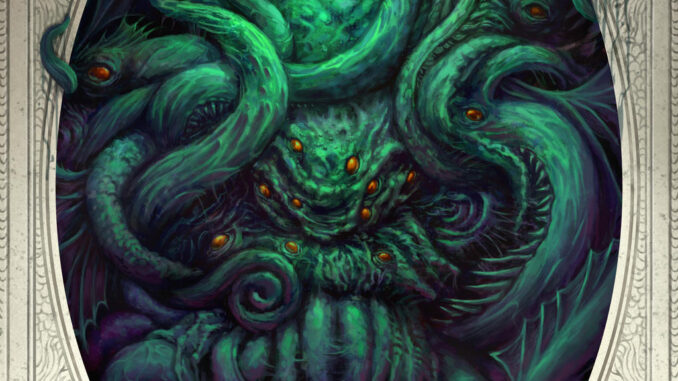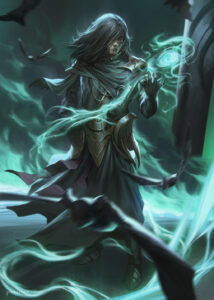
The universe of Call of Cthulhu should not be confused with the worlds of Dungeons and Dragons. Magic is not a tool that can be meticulously learned, so you can place a fireball without hurting a fellow party member.
 In Call of Cthulhu, magic belongs to the Mythos creatures. Getting a taste for magic is a quick path to insanity. There are tricks for prolonging life force so you can live a long time while casting spells, but they all still result in having a character with no Sanity points, which means the character becomes an NPC.
In Call of Cthulhu, magic belongs to the Mythos creatures. Getting a taste for magic is a quick path to insanity. There are tricks for prolonging life force so you can live a long time while casting spells, but they all still result in having a character with no Sanity points, which means the character becomes an NPC.
The Keeper is encouraged to consider the listed effects of a spell as just a guideline. The Keeper should consider first of all where the spell was learned. It can be learned from: tomes, fellow spellcasters and finally from the Cthulhu Mythos gods themselves.
Learning from a tome seems like a safe route to learn a spell, but consider that each tome was written by a sorcerer who lost his Sanity points a long time ago. They may be grossly inaccurate or have side effects beyond what’s described in the spell. For instance, casting a spell may raise from the dead the sorcerer who wrote the spell in the tome. Perhaps it summons or puts the caster in contact with the writer’s Mythos master. Imagine the chaos of a scene if Shub-Niggurath suddenly appeared and started consuming everyone in sight.
The Keeper’s Rulebook also spells out that different editions of the classic tomes offer inaccurate versions of spells. No matter how thorough the caster is at using magic from a flawed tome, something will always wildly go wrong, perhaps dooming the caster or the entire group.
Learning from a fellow caster is quicker than learning from a tome, but it is nowhere as safe as a tome. Whenever shortcuts to knowledge are taken, there are consequences. A slight mispronunciation of a word could have dire consequences, like aging the caster by eighty years or even transporting the surrounding square mile into the Dreamlands.
Whenever a spell is about to be cast in Call of Cthulhu, the player should have anticipation of looking forward to the chaos at a magnitude that greatly outweighs looking forward to the chaos of rolling on the D&D sorcerer’s Wild Magic table. In Call of Cthulhu, there’s no table for the Keeper to roll on to determine the side effects or even the effects of a spell. The only limits are the Keeper’s imagination.
Finally, we have learning a spell from a Mythos god. Besides losing your Sanity points from being in contact with a Mythos god, this is the best way to learn a spell. The caster has the spell burned into his memory. The odds of miscasting the spell are low. Keepers are encouraged to amp up the effects of a spell divined from a Mythos god. If the spell does damage, double or triple the damage it causes. If it is supposed to cause a tree to explode, a whole acre is disintegrated instead.
The argument against increasing the effects of a spell would be it encourages the caster to keep using magic, especially if the effects are far greater than anticipated. This is the right path to take, because magic is supposed to be seductive. Like all elements of the Cthulhu Mythos, it is a path to madness.
Each time the caster performs the spell, he loses Sanity points and drifts closer to becoming an NPC mad man. The Keeper does not need to taper the effects of madness or the side effects of casting to make the player feel good about using magic.
This is not a system where magic is something to take lightly. It is a tool man was never meant to know and leads to further corruption. It cannot be truly contained nor understood. Make sure your players know the risks they’re taking and the consequences of using spells and other forms of magic in the Call of Cthulhu game. Make sure they realize how unnatural and corrupting it is.
Then encourage them to keep on the path toward using more magic and losing their minds to the Cthulhu Mythos. It makes for really good stories the caster’s next character will enjoy hearing about.
